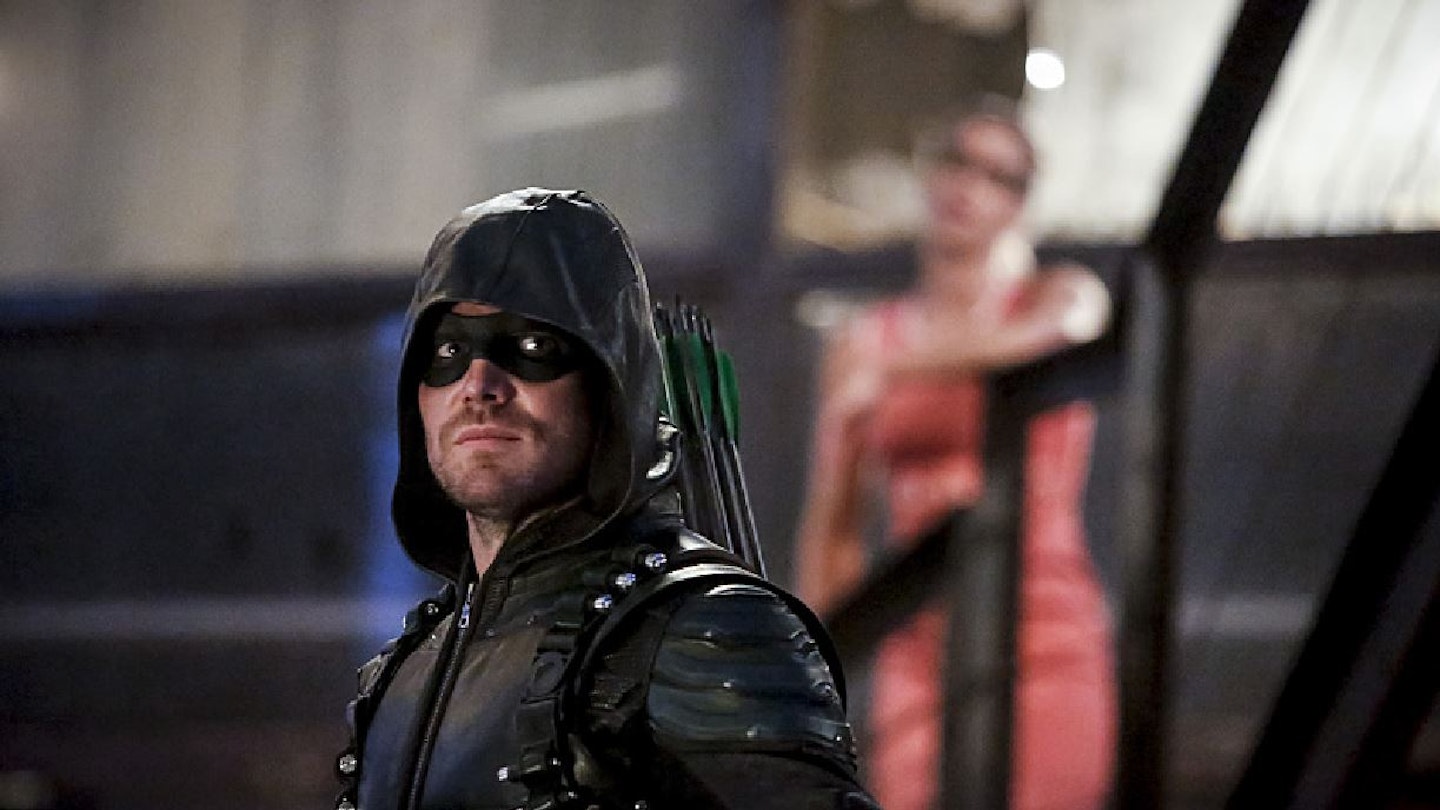Television audiences first met the Green Arrow character in the form of Justin Hartley on Smallville. There he was a in a world of superheroes, most notably Clark Kent on his way to becoming Superman. When the character was brought back five years ago in the form of the Stephen Amell series Arrow, producers were very clear that this was a far more rooted and gritty take on the subject.
Flash forward all these seasons later and Arrow has given birth to The Flash, DC's Legends Of Tomorrow and Supergirl. Along the way, Oliver Queen's world has been filled with a plethora of superheroes and villains, explorations of life after death in the form of Ra's al Ghul's Lazarus Pit, and the realm of magic thanks to villain Damien Darhk and the appearance of John Constantine. In other words, Arrow has gotten pretty out there and now the decision's been made to bring the show back to its more grounded roots, which is what season five is all about. It's also the focus of this exclusive interview with executive producer Wendy Mericle, who offers insight into the new year and the revelation that, should the show go a sixth season, it will require something of a reboot as it moves forward.
At Comic Con one of the big words that kept getting thrown around about Arrow for the new season is gritty and grounded. How would you define that description?
It means several things. One of the things as a contrast to season four is that we're not doing anything with magic. We obviously have that element to play with; we've introduced it, but just like with metas, the bad guys and the villains of the week are not going to be rooted in those worlds. What it does mean is they will be rooted in the kind of criminal underworld that we really last saw in season one, and to some extent in season two as well. So when we say gritty, we mean we're going back to mobster type crime and stuff happening that's specific to Star City. The docks, drug running, maybe even touching on some human trafficking, going back to those types of criminals and those types of crimes.
Secondary to that, and arguably even more important, is that we are going to have more actor action. Especially in season three and four, we tended to get bigger and scopier in terms of our action, and what we want to do is go back to that kind of feeling that you had in the first season when you're out with Oliver, you're out with the Hood, or on season five with Green Arrow, and you get a much greater sense of what it's like to be in his shoes. As much as possible what it feels like to get hit in the face, and be in a fight with the character. Those have been the buzz words that we've been throwing around, and the way that we've been talking about the stories in the writers room and also in terms of directing.
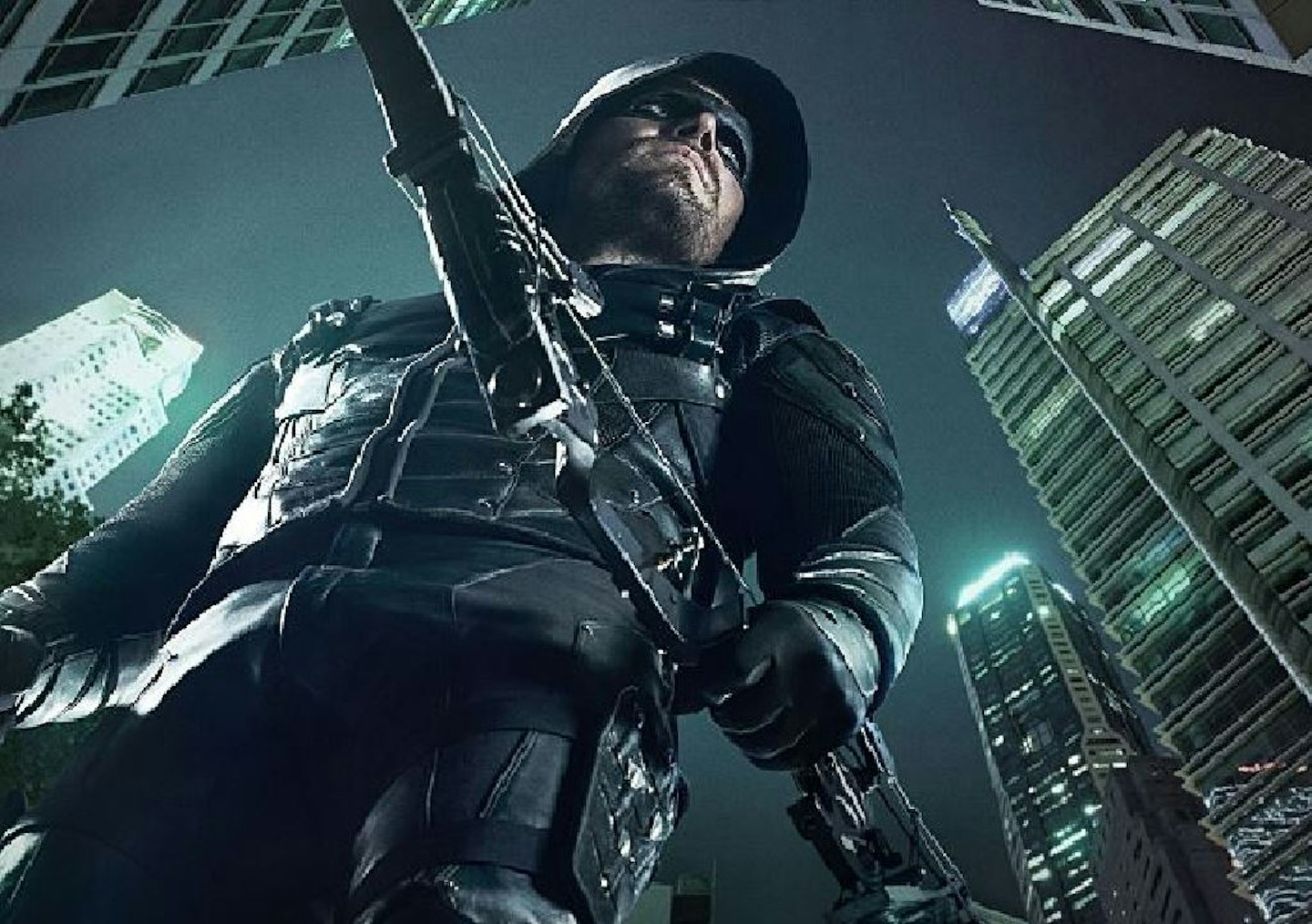
What's interesting is that when you look at shows like Flash, Legends and Supergirl, you want the big action and epic scope. With Arrow it feels like it needs to be more visceral without as much a need for that sense of scope.
It's true. We do operate in a universe that is much more competitive than season one in the sense that we're not just competing with the shows in our universe, but it's all over. It's the Avengers movies, it's S.H.I.E.L.D., it's the stuff on Netflix like Daredevil and Jessica Jones, so that is what motivated it as well.
One of the exciting things about season five, and it felt very right to do it in season five, now, because it's an answer to season one, is that we really are sort of closing this chapter that we kicked off with Oliver coming back from the island and returning to Starling City. This is us moving away from the universe and going back to our roots. It feels creatively right as well for the main character, for Oliver, and for us.
Was season four a wake-up call of sorts that maybe the show had gotten away from itself in a sense?
I think it was. Every year we look back at the previous year and are always trying to do something different. When you look at year five, it seems like an answer to season four in some ways, but also it wouldn't feel as novel, it wouldn't feel as right, in season five to be going back if we hadn't had season four. I understand it was a controversial season and I understand why, but part of our job is to take those risks and see what the limits of the show are. You really don't know until you try, and hopefully this season will take us back to what a lot of the fans liked in the first few years, but also with a difference. We're going to have new people in the bunker, there's still going to be a certain tone, a difference in tone purely because there are other people. It's not just Oliver out there fighting on his own.
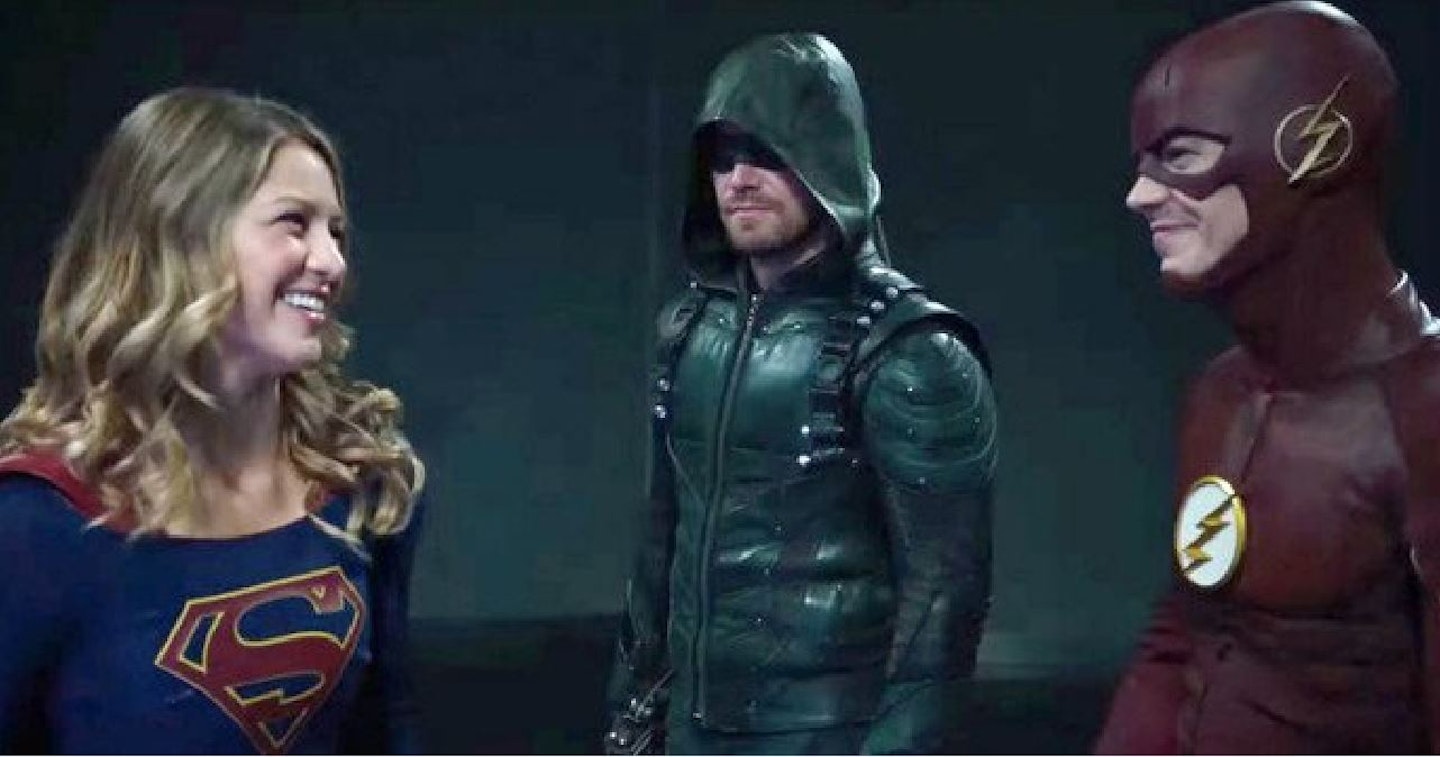
Ironically, at the same time there's all of this excitement about the four-episode crossover with Supergirl, Flash and Legends Of Tomorrow, you're trying to get back to basics. It almost feels like bad timing in a way. Is that a challenge?
Absolutely, but it was one that we knew we were going to be facing, and we knew it was going to be tricky to fit it into this four-part story. It is really more of a three-parter; it kicks off at the very end of Supergirl, but the main body is in Flash, our show, and Legends. At the same time, I have to say we're really excited about this crossover, which also happens to be our hundredth episode. We wanted it to feel not like something that's part of this bigger universe, even though it is and we do want to honor that part of it, because we were the first and we in many ways are responsible for this universe. But we wanted it to feel like the hundredth episode and very true to Arrow. I have to say we've come up with a way that we're really excited about.
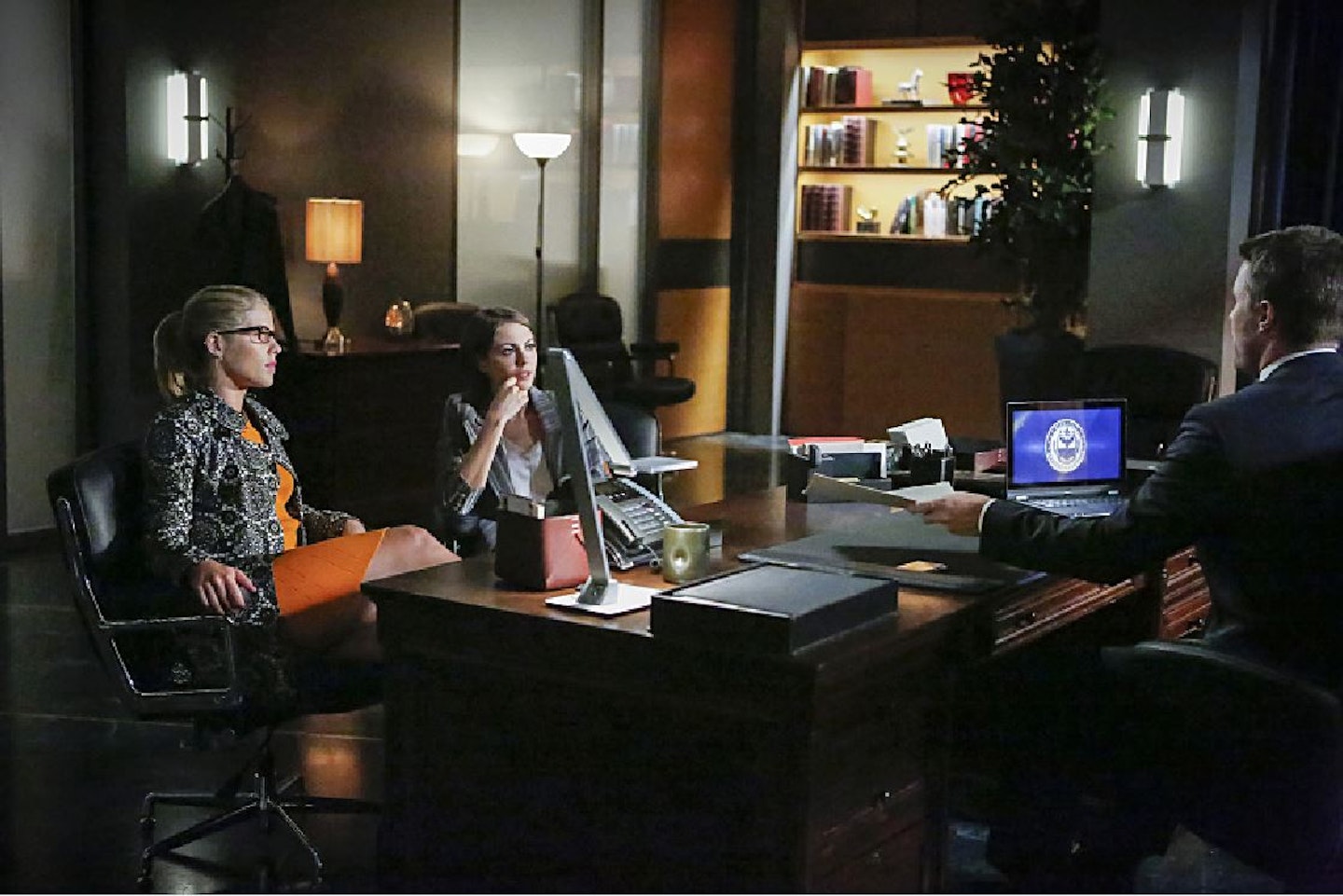
The flashbacks are coming to an end this year. Assuming the show is back for a sixth year, does it give you the opportunity to sort of reboot the show as you begin a new "novel"?
One of the things we talk about a lot is, "Well, if we can't do this in season five, not only are these stories we could do in season six but how else are we setting up season six?" Because you have to be thinking about the end game, and when you're thinking about the end game of season five, those are the seeds of the next chapter. There is no question, everything you're saying is absolutely correct. It is going to be a reboot. Even as we're writing season five, and like I said, it is an answer to season one, it's also the closing of that chapter. When we come back for six, we're really looking down the barrel of, "Okay, well we don't know how many more seasons we have. We hope we have a season six, we hope we have till season ten," and you want to start planting, the same way we did in season one, those seeds for what is going to sustain the show for another season or two or three or four.
That is a tricky endeavor, but it's also exciting because it gives you an opportunity to radically rethink the show. Not too radically, because you want it to still feel like Arrow, but we have a lot more real estate now because we won't have flashbacks in every episode. We do have the luxury of having created that structure in the past, and if we want to use it for the one of our characters or for a new character, to get into their heads or to understand their back story more deeply, we have the advantage of having that in our arsenal to use. A lot of questions are raised, and I think we'll be answering those while hopefully really setting some of that stuff up in the finale this year. It's going to be a good challenge.
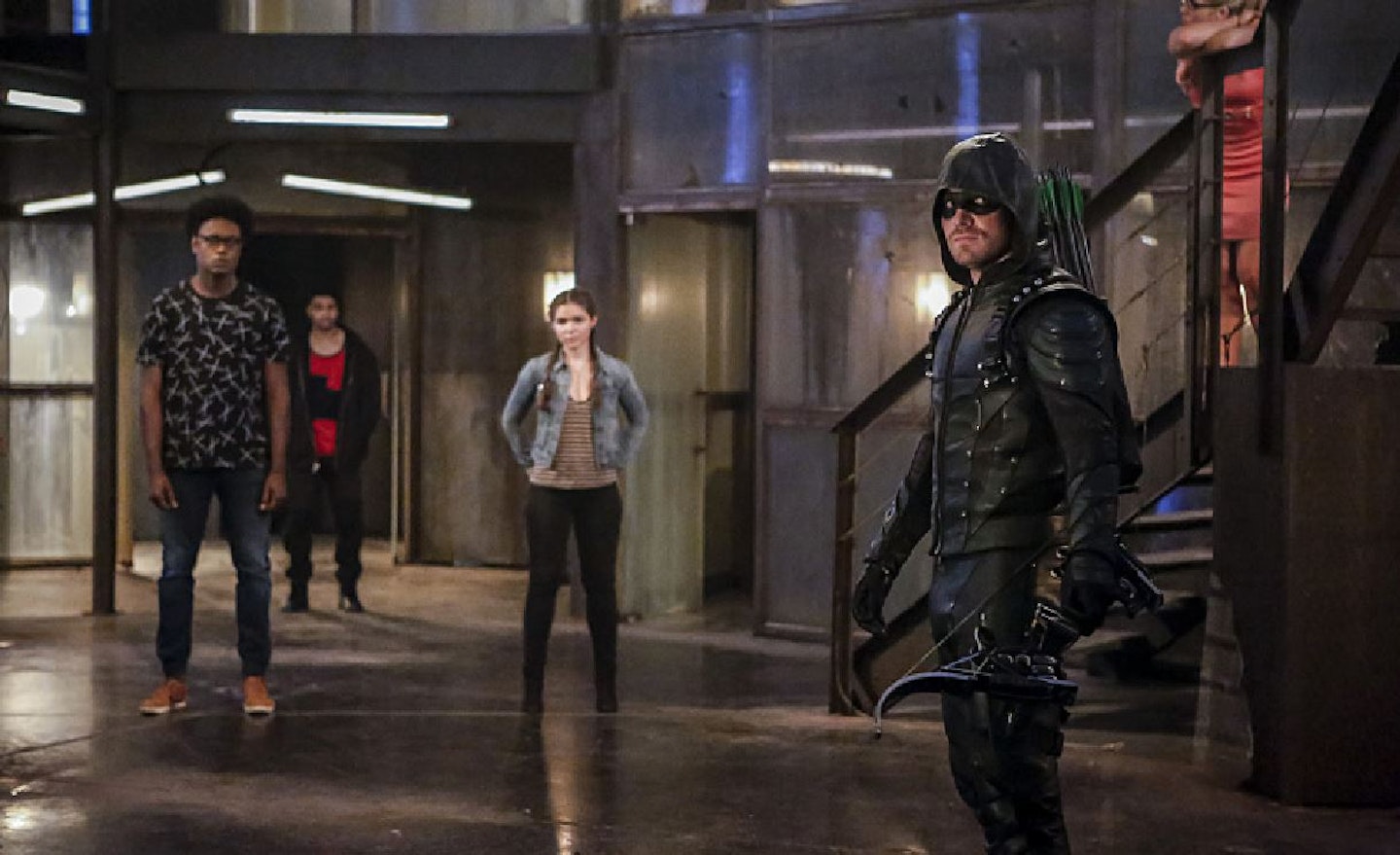
How would you describe the journeys of the characters this year?
Oliver, like we are in the writers room in some ways, is really looking back at the past four years, trying to assess whether or not his mission has been accomplished or if it's even close to being fulfilled, and whether or not he went about it the right way. He'll be in the mayor's office and he'll be assessing and kind of looking at different ways of being a vigilante, and different ways of working with standing outside the law. For him it's a question of legacy, and that is the theme of the season from all of the characters. They're all going to be assessing that in various ways.
Thea will also be looking back and, true to what we had set up for her in season four, she's going to be trying on this new life as just a normal person. The last time we really saw her that way was also in season one, but now she's a lot older, she's a lot wiser, and she's been through everything from the Lazarus Pit to being a vigilante to losing her mother. She's going to also be assessing, as she works with Oliver in the mayor's office, what her legacy going to look like, what is the Queen family legacy going to look like in Star City going forward, and has she accomplished anything in terms of honoring her family?
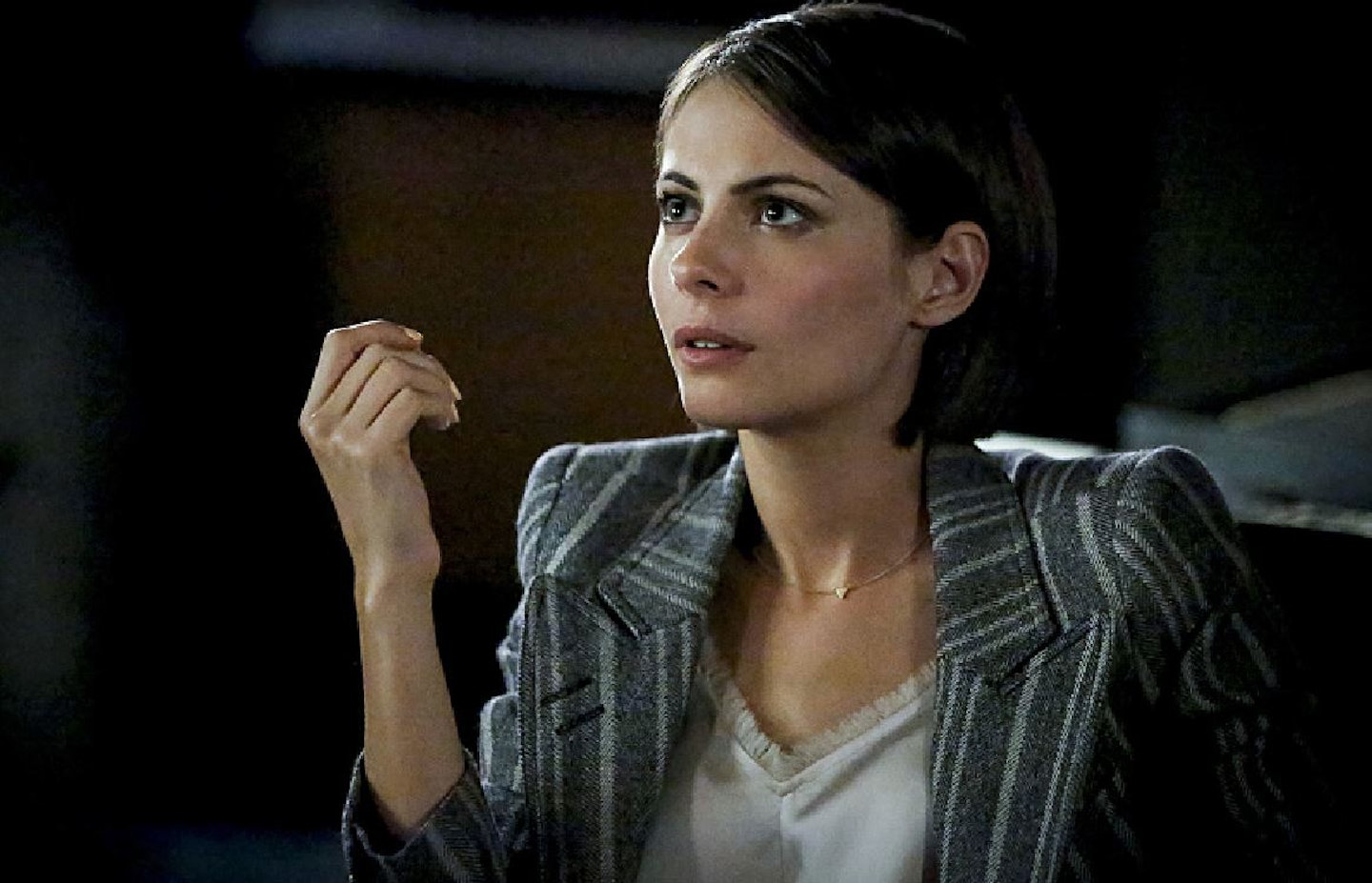
For the first half of the season, Felicity is really going to be focused on Haven Rock and what she did in last season [dropping a nuclear bomb there to save the rest of the world]. For her it's this really painful question of, she had to make a very hard decision in a very short amount of time, and yet she's responsible ultimately, from a certain point of view, for the highest casualty count we've ever had on the show. It's her first real taste of the high price of being a vigilante, and she's going to be grappling with the very fundamental question of whether that was the right decision, and how does she make up for the fact that, in her mind anyway, she is responsible for the loss of those twenty thousand people?
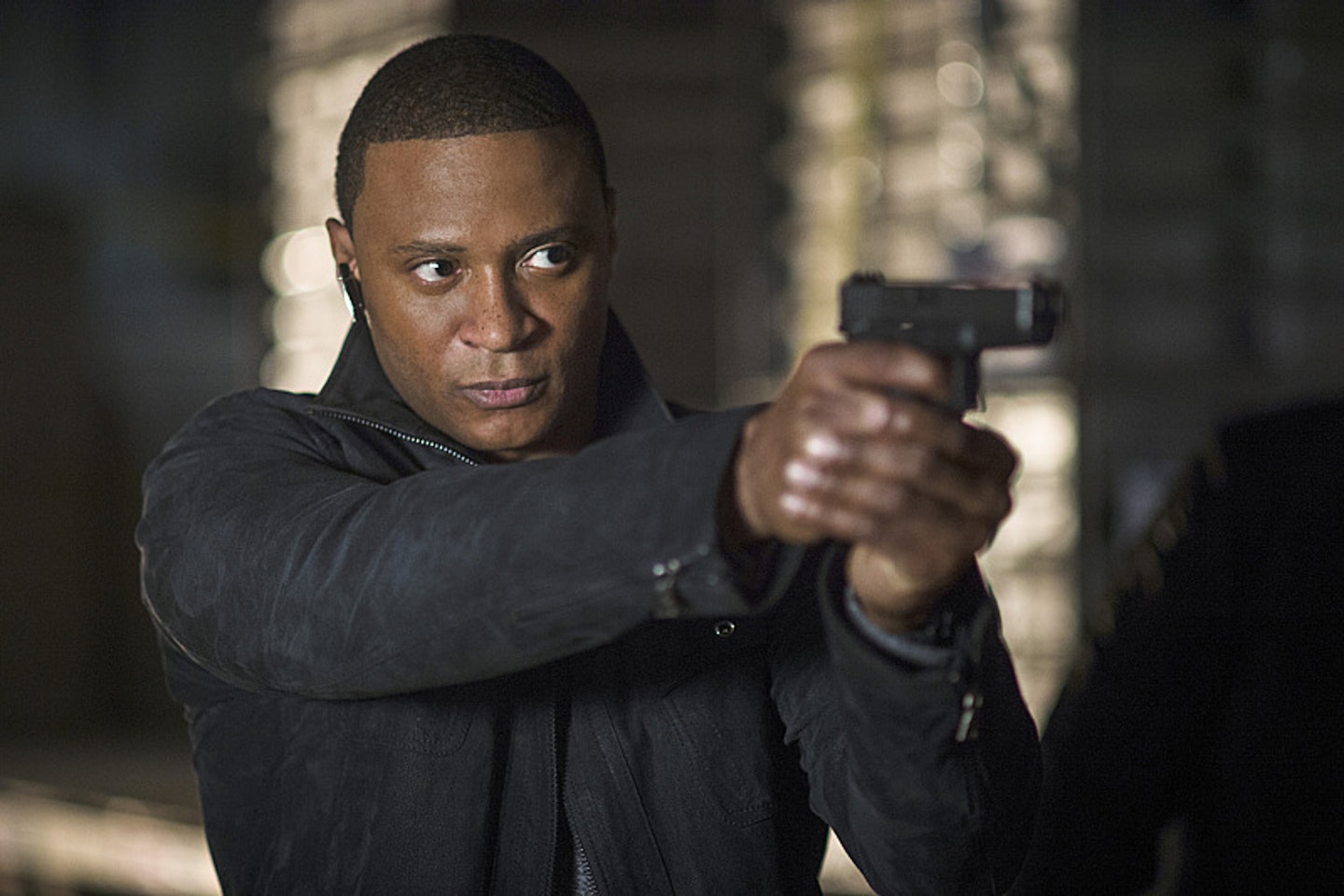
We left Digg in the military; he went off to assess his own past, and the fact is that he has a child and he also has a nephew out there that at some point is going have to know the truth about the fact that he killed Andy. He basically put the bullet in his body that killed him. He's going to go to the military and try to figure out where he lost his way. He quickly comes to the idea that his answer lies in Spartan and ultimately coming back to the team.
All of them, as you can see, have the recurring theme of both looking back and assessing legacy, and also looking forward and thinking about, "What kind of impact have I had as a vigilante and as a human being, and what am I going to do both to kind of change that, or to make it better?"
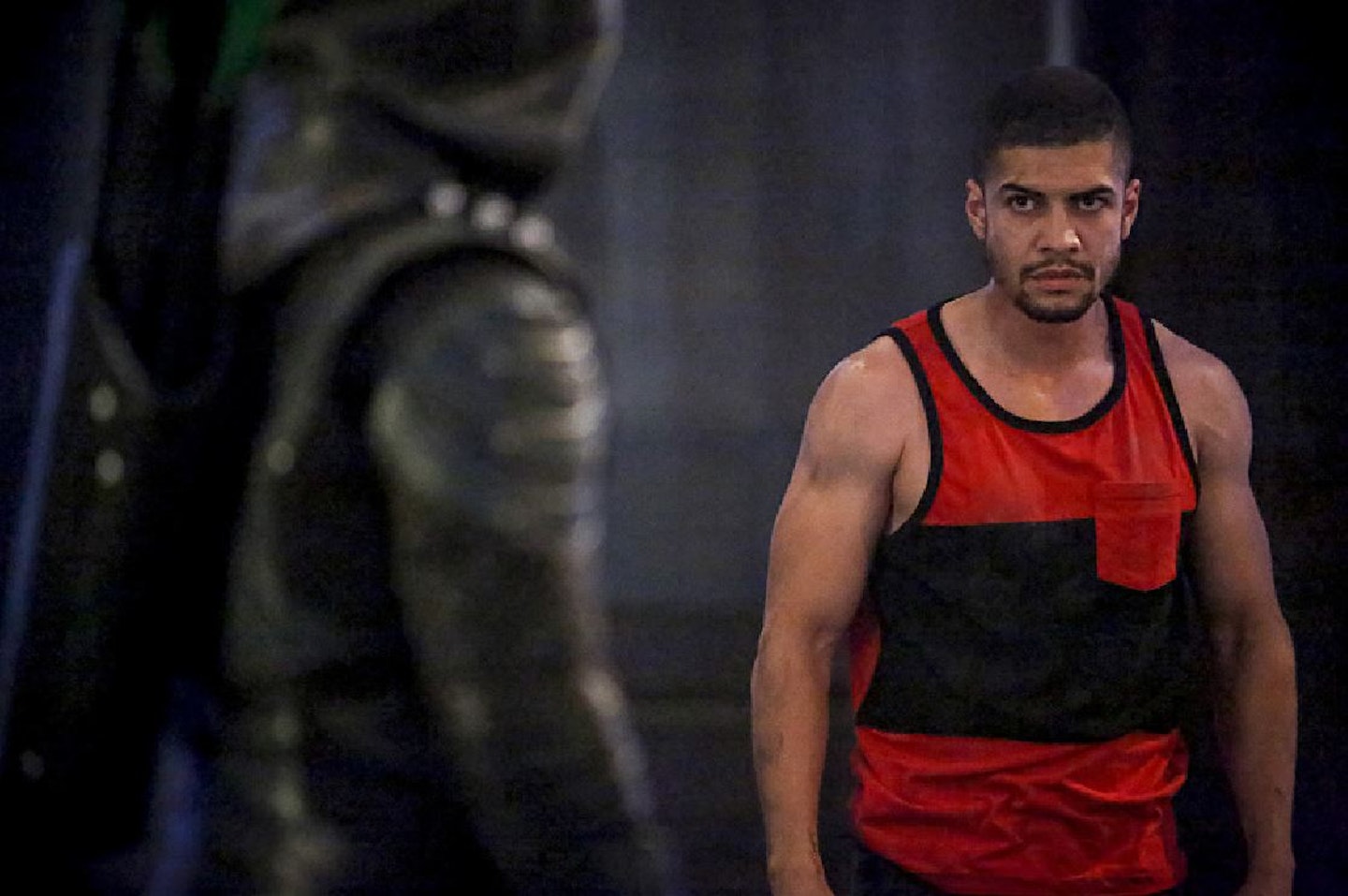
A new wave of vigilantes are being introduced this year. What can you say about that?
There are a couple of things that will really be clear in the premiere. One is that these vigilantes create as many problems as they solve, and Oliver has literally created this legacy that I don't think he ever anticipated, and one that he definitely does not want. It becomes a question of, "Do I guide these people and help them or do it try to eliminate them?" That's the first thing. It's also where the city is at this point. When we came into the top of season four, people were leaving in droves and that's no longer happening.
At the same time, crime has really taken root in the city, and the mob, the Bertinellis, are empowered; the Falcones are coming back, the Bratva... Everybody is trying to get their piece of the pie and crime is a significant problem; there's corruption in the SCPD. Those are the types of crimes they're going to be facing, and that is another kind of reason that these vigilantes have spread out: there's a power vacuum and Oliver is the mayor. How is he going to fix that?
What's the thing about season five that you're most looking forward to?
The Russian flashbacks, without a doubt. It's something we've always wanted to do. Every season we would say, "Let's do Russia this year," and for various reasons creatively we would take it down the road, and this is the season we're going to do it. It just feels very gritty and very dark, and seeing how Oliver got the Bratva tattoo, how he became a captain, and how he became the PTSD killer that we see in the pilot... It's exciting stuff. It's fun to close the loop on all these things that we were all there for at the kickoff.
Arrow airs on the CW in America and Sky1 in the UK.
